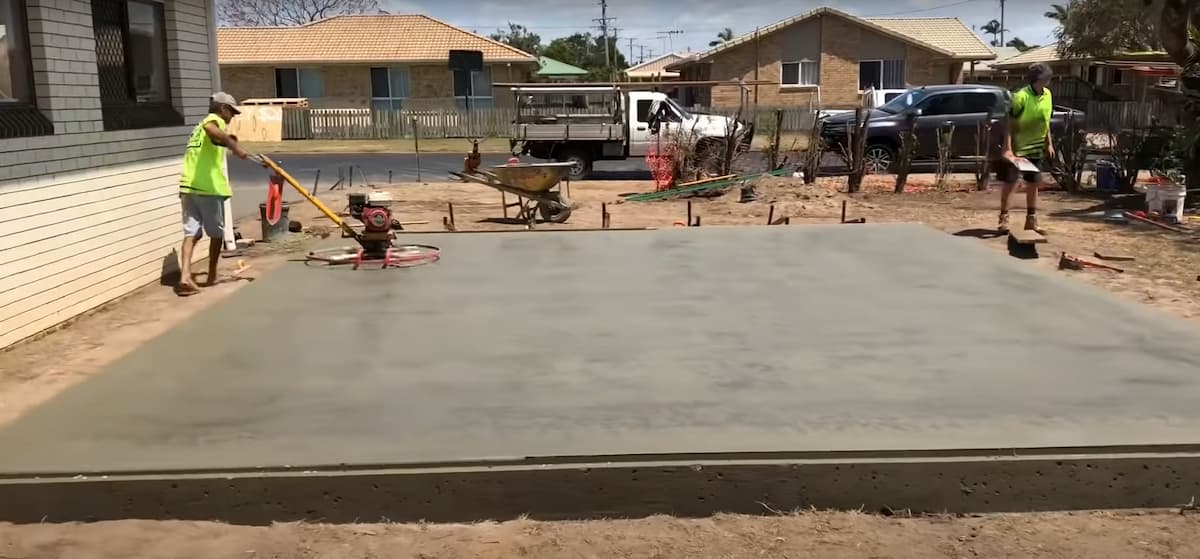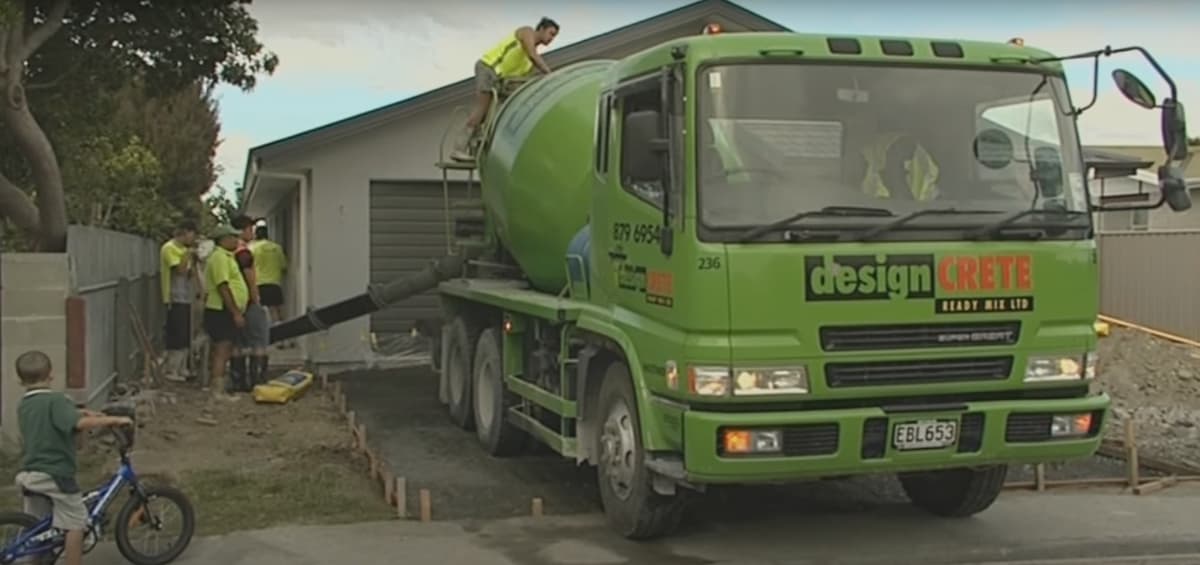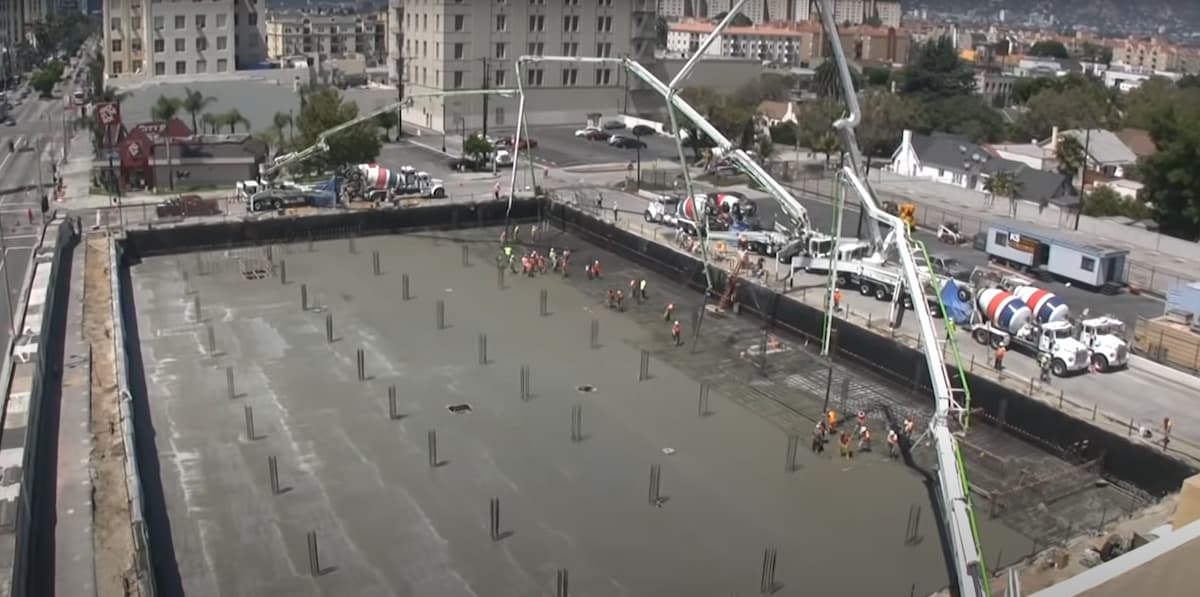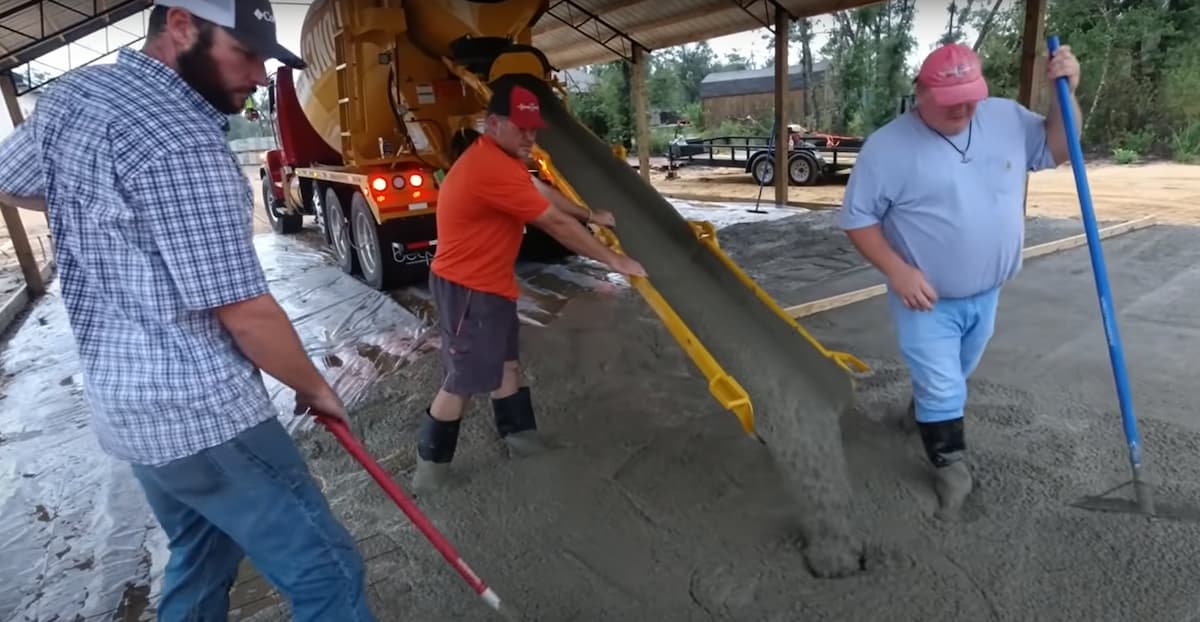
Honed concrete is a very popular type of flooring that is also known under the name grind and seal concrete. It is also called grind and seal concrete because of the procedure that one has to follow to get this type of flooring done.
To better understand what is honed concrete, you need to know what the process of honing concrete includes. With the help of some grinding, we remove the top layer of the concrete and reveal the aggregate in the surface. Then, we add some sealant or a topical coating to protect the surface. This topcoat should also give the concrete a glossy finish.
The sealant sinks into the concrete during the drying period and thus helps the surface stay clean and impenetrable for all types of microorganisms.
This is what makes the honed concrete flooring such a great option for both residential and commercial properties – it is durable, it does not require much maintenance, and it always makes the property look better.
What is Honed Concrete Used for?
Honed concrete is not popular only because it looks incredible, but it also has some amazing features that make it a great choice for both indoors and outdoors. For starters, the honed concrete is very durable and has anti-slip resistance. Because of these characteristics, honed concrete is suitable for pool surrounds, which compliments stylish pool fencing designs and verandas.
Next, we can say that honed concrete is very hard and sturdy. So, it can be used for pathways, driveways, porches, and even footpaths. This type of flooring is also customizable, so you can design it to fit the inside of your house and improve its aesthetics.
What is the difference between honed and polished concrete?
Before you make a final decision on whether to use honed concrete or polished concrete, you should know what makes these two flooring options different. We can say that there are more similarities than differences between these two concrete flooring options, but the differences should still be noted.
Different sealers
With honed concrete, we start with some grinding and move on to sealing. The sealing acts as a barrier that keeps all dirt and microorganisms away from the concrete itself. There are different types of sealers available but the sealing process used for honed concrete is not the same as the one used for polished concrete.
Different suitability
Even though the honed concrete can be used indoors, it is used outdoors more often because of its slip resistance. This is where we make the biggest distinction between the honed concrete and the polished concrete. Polished concrete tends to become very slippery when wet, so it is not advised to use it outdoors.
Different characteristics and appearance
Another difference between these two flooring options is that polished concrete is known to be a bit more durable. There are more design options to choose from with this type of flooring, and it is known to need less maintenance and cleaning than honed concrete.
Is honed concrete slippery when wet?
If you decide to hone concrete, you can also use an anti-slip additive in the mix so that the finished product becomes slip-resistant. Usually, all honed concrete floors have this additive and are not slippery when wet.
It is even advised to use such flooring around pools and verandas, where you can expect to have at least some water on the concrete at all times. Unlike polished concrete, the honed concrete is perfect for the outdoors and wet areas in general.
What is the cost of Honed Concrete?
In Australia, the price of honed concrete is around $75 per square metre. This type of concrete flooring is a bit costlier than polished concrete flooring, the price of which is anywhere from $25 to $50 per square metre. Only the mechanically polished concrete floors are more expensive than honed concrete floors and their price is usually around $100 per square metre.
These are estimated prices for both polished concrete and honed concrete that can vary depending on the size of the area you want to hone, the condition of the floor, the access as well as the materials that are used. It is always a good idea to hire a professional that would come in and hone your concrete for you instead of making concrete honing your next DIY project.
How do you hone concrete?
The process of honing concrete includes a couple of stages. You should start by using a 20 or 30 grit to grind the concrete floor. Depending on how deep you want to hone the floor, you will get different types of aggregate on the surface.
Once you reach the desired depth, you can use a 60 or 70 grit to remove all scratches from the surface. Then, you will need 100 or 120 grit to get that smooth finish, which is sometimes used in concrete driveway projects. Once you go through all these stages, you will need to seal the floor. Do not forget to use an anti-slip additive in the mix and turn your new honed concrete floor into a slip-resistant floor.





